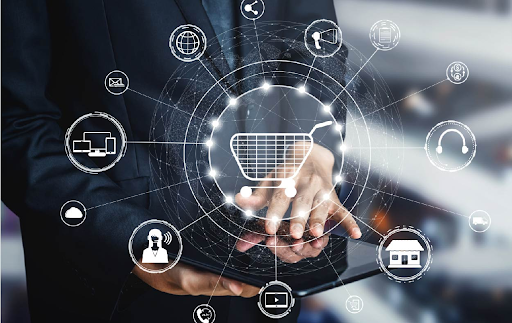There are many changes taking place in the retail industry, particularly when it comes to how consumers shop and pay for their goods and services. The rapid technological advances that have made online shopping possible are driving changes in other areas of retail, too. Shoppers are more informed about products than ever before, so retailers have to be better informed about their customers’ wants and needs in order to remain competitive. This article takes a look at some of the biggest trends affecting retail today—from virtual stores to mobile payments—and the changes they could bring tomorrow to the future of retail eCommerce shopping.
1) E-Commerce-Friendly POS Systems
If your business is brick-and-mortar, you’ll want to find a point-of-sale system that’s compatible with eCommerce. Many popular solutions—like Shopify and Bigcommerce—are eCommerce platforms built for web storefronts. Check with your POS provider about how they support online orders, such as whether they can integrate with a third party like ShipStation or UPS. You’ll also want to ask about fees and reporting, which differ from solution to solution.
2) In-store Technology
The next time you’re in a store, pay attention to how many employees are on hand—and then think about whether or not these workers are actually contributing to your experience. If there’s someone behind a computer screen who isn’t providing you with any value, chances are they could be replaced by technology that would augment your shopping experience—without making it worse. Retailers are increasingly using cutting-edge tech to provide consumers with real-time assistance while they shop.
So if your business is going to remain relevant in the long run, you will need an eCommerce software solution in addition to a physical solution.
3) Virtual Fitting Rooms
Virtual fitting rooms allow retailers to showcase products in ways that simply aren’t possible with brick-and-mortar stores. In a virtual fitting room, you can try on clothes from any number of designers—instead of searching through racks in a store, you can virtually change into an outfit from home and see how it looks. The technology is still fairly new, but these 3D modeling spaces show a great deal of promise for online shopping platforms.
4) Chatbots
Tech and retail are getting cozy. A recent survey shows that retailers who use chatbots see a 12 percent increase in conversion rates. For many, however, chatting with a bot isn’t enough; they want to buy through them, too. As such, more and more companies—including Warby Parker and Lyft—are integrating their chatbots into mobile wallets so that users can easily purchase what they want while chatting.
5) Online Ordering
If online ordering is a function you think you’ll use, make sure it’s included in your restaurant software. In other words, don’t expect your POS to support an online ordering platform if you select a different POS system. You should also make sure that if you do go with an online ordering platform, it can integrate with other software features and third-party applications for seamless functionality throughout your business.
6) Robots and Autonomous Vehicles
Many companies are already experimenting with robots and autonomous vehicles. Walmart, for example, is testing a fleet of driverless delivery trucks, and Domino’s has unveiled plans to test self-driving pizza delivery vehicles. These technologies will allow retailers to deliver products directly to customers and reduce labor costs (and theft). More convenience and lower prices mean more sales.
Conclusion
Smartphone shoppers are growing in number every year. There were over 1 billion smartphone users in 2014, and that number is predicted to hit 2 billion by 2019. Combined with advances in technology, that spells big changes for brick-and-mortar retail outlets. The Internet revolutionized how we shop—but now mobile shopping is poised to take things a step further. Not only will there be physical stores, but also virtual stores you can visit on your mobile device whenever you want or need to.
If you are ready to adopt these technologies and add value to your clients, then a retail software development company in India is the perfect partner for you. It can provide you with retail software development services.



